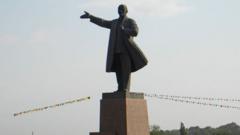Gordievsky’s defection marked a significant turning point in intelligence operations, shaping global politics in profound ways.
Oleg Gordievsky: The K.G.B. Double Agent Who Changed Cold War Dynamics Passes Away

Oleg Gordievsky: The K.G.B. Double Agent Who Changed Cold War Dynamics Passes Away
Oleg Gordievsky, a pivotal figure in Cold War espionage, dies at 86, leaving a legacy intertwined with British intelligence.
Oleg Gordievsky, once the preeminent K.G.B. agent stationed in London, has passed away at the age of 86. He was discovered dead at his residence in Godalming, southwest of London on March 4. Local police reported no signs of foul play, but further investigations are underway. Gordievsky's life is marked by his remarkable role as a double agent for British intelligence, having been recruited by MI6 in 1974 while he was based in Copenhagen.
After relocating to London in 1982, Gordievsky found himself tasked by the K.G.B. with disseminating misinformation regarding British Prime Minister Margaret Thatcher prior to the pivotal general election of 1983. Instead, he utilized his position to assist the British in identifying Soviet agents and operatives. His efforts so impressed his K.G.B. superiors that he was promoted to the role of head agent in Britain, or rezident.
Gordievsky's intelligence was invaluable during tense moments of the early 1980s when the Soviets feared that the U.S. was preparing to launch a nuclear first strike masked as a NATO military exercise. His insight allayed these tensions, contributing significantly to averting potential catastrophic conflicts. Known for his duality, Gordievsky managed to maintain the trust of his K.G.B. colleagues while secretly working against them, firmly establishing himself as one of the most impactful intelligence figures of the Cold War era.




















